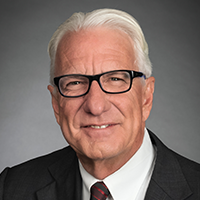Ethics in Brief: The First Amendment on Trial in State Bar Court
By David C. Carr
Introduction
The First Amendment guarantees free speech, which is one of our most cherished freedoms. Yet, as we all know, it is not absolute. Recently, the First Amendment has played a more significant role in the jurisprudence of lawyer discipline. Lawyers, after all, are speech warriors. Fueled by new and more effective modes of communication and the breakdown in norms of restraint, First Amendment issues are coming to the surface more often in State Bar Court. This leads to different results as the nuances of the First Amendment collide with the professional obligations of the lawyers. This edition of “Ethics in Brief” briefly examines three recent decisions of the State Bar Court where the First Amendment was raised as a defense.



